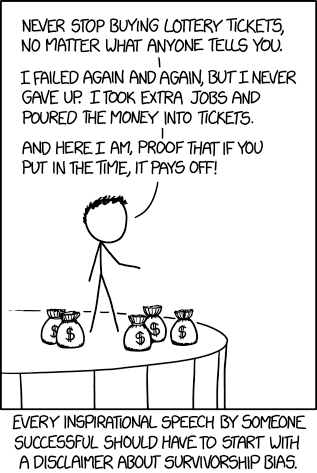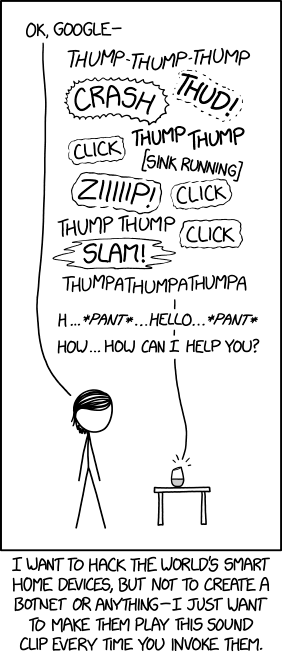Shared posts
Too Much Talking
KingofthesofasYes this is how I feel after every social engagement. I still think about opinions I shared like 5 years ago and wonder if people thought I was dumb or not.
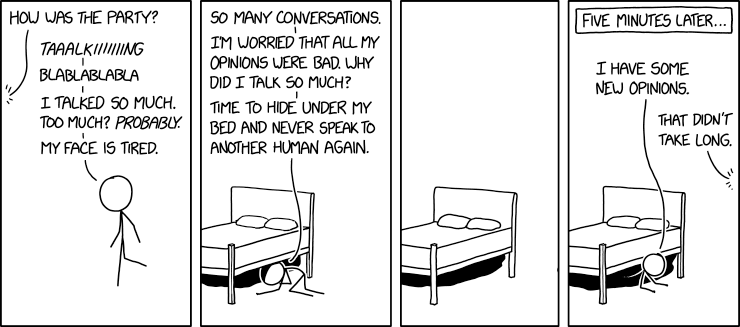
Please stop marking yourself safe on Facebook
KingofthesofasI always find it funny when a hurricane hits Houston and I have a dozen people that live in Austin marking themselves safe.... I teeter between that's just silly and do they know something I don't.
Let me begin by saying that Facebook’s Crisis Response pages do a lot of good. They are a locus for donations and offers of help. But that said, for the love of humanity, when something bad happens, please stop marking yourself safe on Facebook.
They don’t mean to prey on our anxieties. They mean to assuage them. But all they do is reinforce the incorrect notion that the world is a terrifying place where unpredictable awful things happen frequently; they worsen the problem by attempting to treat the symptom.
Consider, for instance, “The Tornado in Ottawa, Ontario and Gatineau, Quebec, Canada” a few months ago. As a former Ottawa resident I have multiple Facebook friends there. Todd and Jennifer marked themselves safe; but what about Joe? Stefan? Stephane? What happened to them?
Yeah, they’re fine, thanks, because that region has a population of 1.3 million, and while it is a shame that six of them were hospitalized as a result of that tornado (which hit Canada frequently) when you do the math you quickly realize that that is equal to one out of every 216,000 people. If a single person were hospitalized as a result of an incident in a single town of 216,000, would Facebook call on every resident of that town to mark themselves safe?
I mean, if Facebook did do that, why, your feed would be a nonstop deluge of Crises from which people are Marked Safe. The world would seem like a cauldron of terrors, and any unknown much too scary to venture into, full of things which might harm you and your friends and family. You would be fearful of other places, and maybe eventually, almost logically, by extension, people from other places, too.
Our brains are well known to weigh our fears based in part on how vivid they are rather than how likely they are. So we worry more about vivid events than actually fearsome ones. Would Facebook call on New Yorkers to mark themselves safe if a terrorist attack killed 15 people in a busy subway station? Of course they would. It’s not even a question, is it.
But 15 is fewer than the number of New Yorkers killed in traffic every single month. Is Facebook calling on New Yorkers to mark themselves as “Safe From Cars” every month? Of course not. That’s a laughable concept. But the risk of that is greater than the risk of any given New Yorker being killed in that hypothetical terror attack.
And – here’s the key – when Facebook asks you to mark yourself safe, and reports that you’re safe to all your Facebook friends, it may reduce some specific anxiety in the short term, but it does so at the cost of increasing generalized anxiety — about the world and everything in it — in the long term.
There are of course some crises so awful, so huge, so widespread, that this no longer applies; where the risk to any individual is in fact much higher than, say, the annual risk of dying in a car crash. If Facebook reduced its calls to mark yourself safe to such actual crises, then none of the above would apply. Let’s hope that one day they ratchet down their anxiety-inducing algorithms and do just that.
Only the penitent coder will pass
KingofthesofasTruth
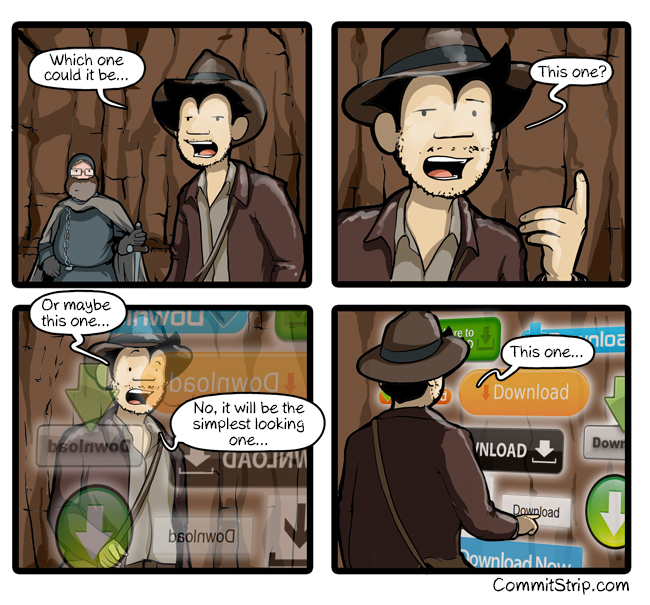
How long will it take my baby son to defeat the Strong Suction Silicone Plate?
KingofthesofasWe had the same experience with a bowl this week. William figured that out in seconds flat.
We bought the QShare Strong Suction Silicone Baby Plate from Amazon. This product promises to remain affixed to any plastic, metal or other smooth surface no matter how hard a youngster tugs at it. In preliminary testing, we noticed that it was secure when pulled, but that it could be peeled up at the edges.
So after serving up Alfy's dinner and placing him in his high chair, we trained a camera on him to see how long it would take him to defeat the Strong Suction Silicone Baby Plate—if at all.
American Psychosis: the early warning signs of democratic collapse are all around us
KingofthesofasEver get that feeling that things are getting worse and worse but there is not a lot you can do to stop it. I think I finally understand the saying that people who study history are doomed to watch everyone else repeat it.
Banx sends us American Psychosis, a 15-minute short in which "Pulitzer-prize winning journalist, author and activist Chris Hedges (previously) discusses modern day consumerism, totalitarian corporate power and living in a culture dominated by pervasive illusion."
Anti-Vaxxer Mom Shares Facebook Post About Her Son Catching Whooping Cough
KingofthesofasI that these peoples kids have to pay for their ignorance and stupidity.
The kind of blind ignorance that has a knack for inspiring utter speechlessness on our parts.
Submitted by:
05/21/18 PHD comic: 'Upgrade'
KingofthesofasThis reminds me of the guy at the fire department that got a new laptop and then just put it under his desk and continued to use the old laptop until 3 years later when he was due for another new laptop and I found he was using the new laptop we gave him as a monitor riser. He did not get any other new laptops for a long time.
| Piled Higher & Deeper by Jorge Cham |
www.phdcomics.com
|
|
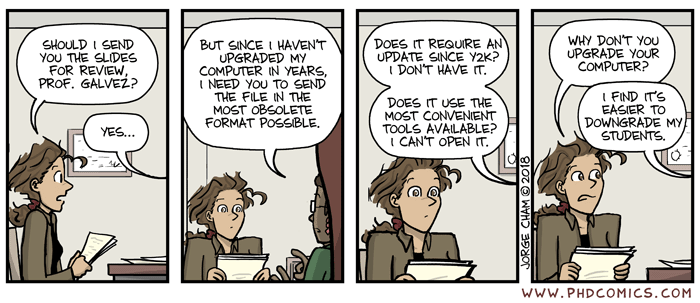 |
||
|
title:
"Upgrade" - originally published
5/21/2018
For the latest news in PHD Comics, CLICK HERE! |
||
Reading an article on your phone in 2018
KingofthesofasWhat I want to know is who actually says yes to allowing a site to send notifications. I wish there was a way to just globally say no to all sites and notifications and never have a site ask me again.
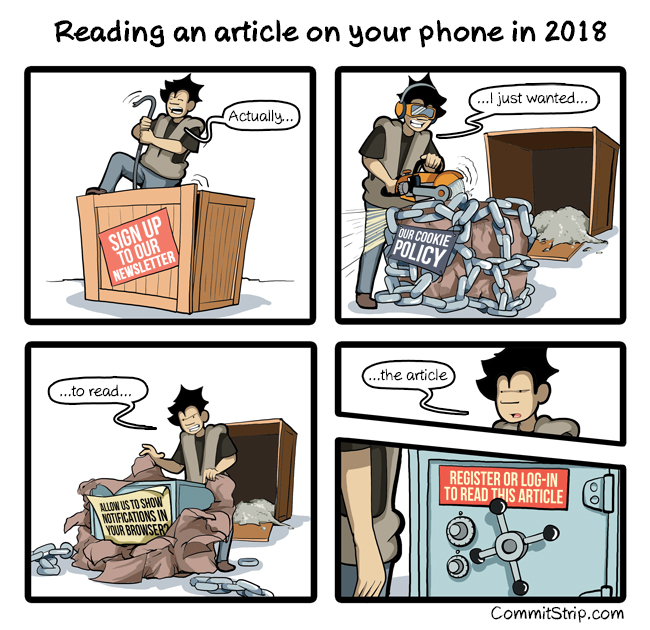
They never get anything right
KingofthesofasAndrew one name Jim Dewitt. This was him all the time.
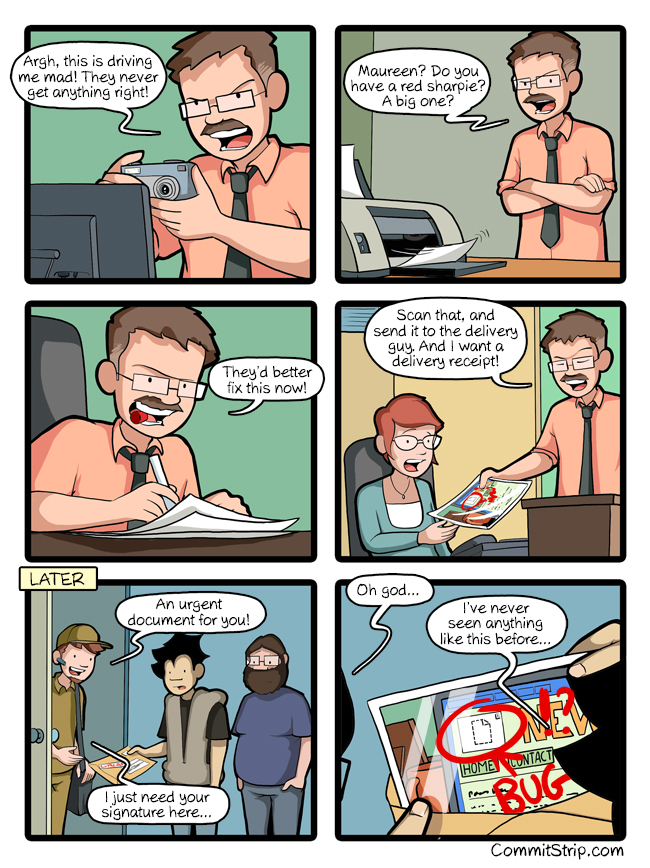
The price of backups
KingofthesofasBackups are the least important thing in the world to most people until you need them and they become the most important thing in the world.
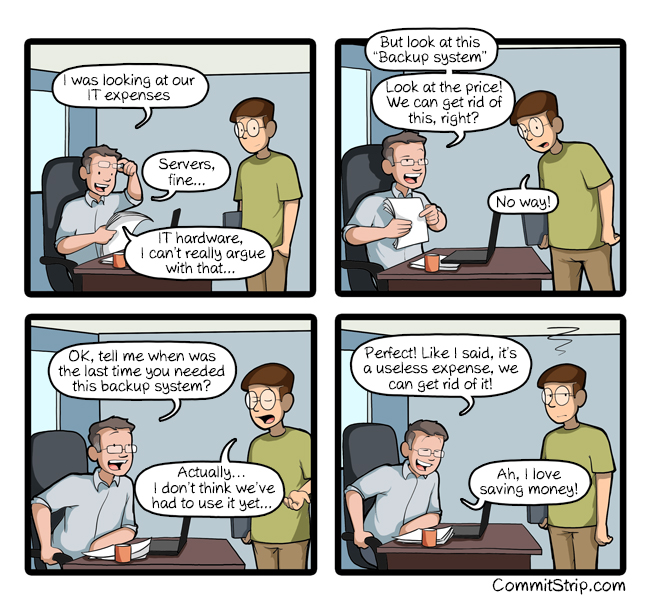
All my messages are being marked as spam
KingofthesofasI have wondered about this exact thing. Also related what if there really is a Nigerian prince out there than needs a business partner. He is screwed.
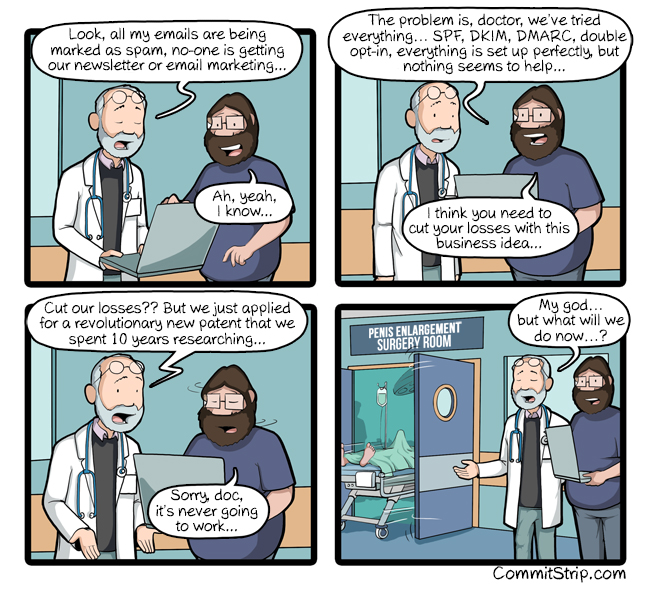
Coincidence? I think not
KingofthesofasWe all know what really happened https://img-9gag-fun.9cache.com/photo/aDx0V9O_460sv.mp4
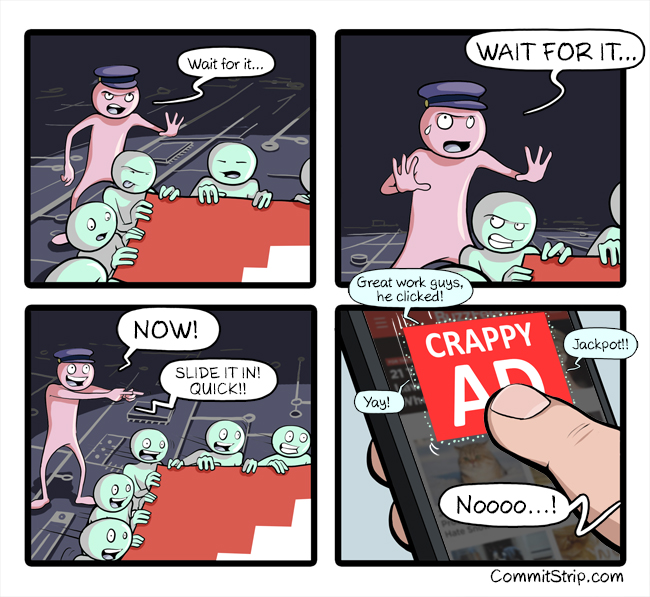
Intel reportedly notified Chinese companies of chip security flaw before the U.S. government
KingofthesofasTo be fair I bet the NSA already knew about them.
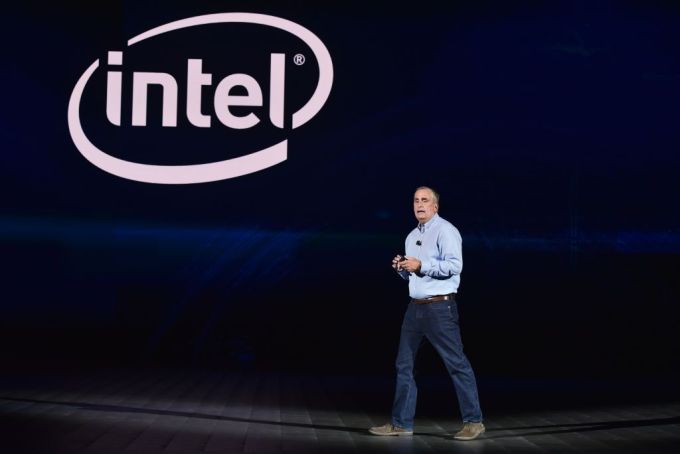 Intel is not having that great of year thus far in the face of a slew of information about security flaws in it hardware coming out — and you can add another new report from The Wall Street Journal today, which suggests that Intel didn’t immediately notify the U.S. government of the issues, to that list. The Journal is reporting that Intel notified some of its customers of the… Read More
Intel is not having that great of year thus far in the face of a slew of information about security flaws in it hardware coming out — and you can add another new report from The Wall Street Journal today, which suggests that Intel didn’t immediately notify the U.S. government of the issues, to that list. The Journal is reporting that Intel notified some of its customers of the… Read MoreUniversal Dreams
KingofthesofasYeah this is me just some of the reoccurring things in my dreams are really really weird. Also I dream about things sometimes and then they happen but always like weird meaningless stuff like I dream about running into someone I have not seen in awhile and then a few days later I do run into them and we just have 1 minute of small talk and there is no meaning to it whatsoever.
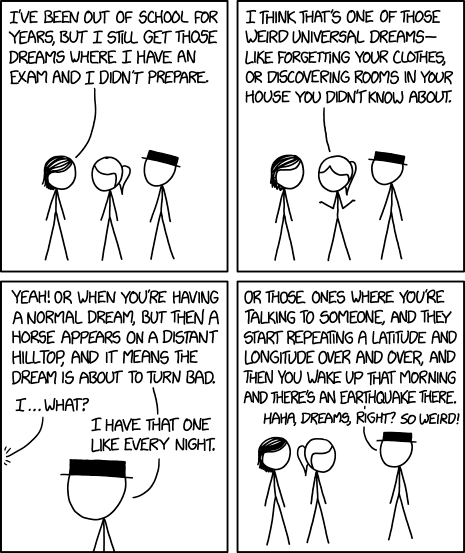
North Korea says new missile can re-enter atmosphere
KingofthesofasI have been following and researching this situation deeply for years. The risk here is far greater then most people realize. There are really only two options here, Either we accept that NK is a nuclear and plan our deterrence accordingly or there will be war. War is most often the result of competing foreign policy decisions. The US and NK both cannot meet their goals and there is no scenario of sanctions that will ever change NK mind so we either accept it or there will be war. I give it maybe a 30-40% change in the next 6-9 months that there will be war.
Security vs Business
KingofthesofasThe problem is we are not the customers we are the product. So really any data breach is less about our rights and more about someone getting the product for free. Until that changes we will keep having the same problems.
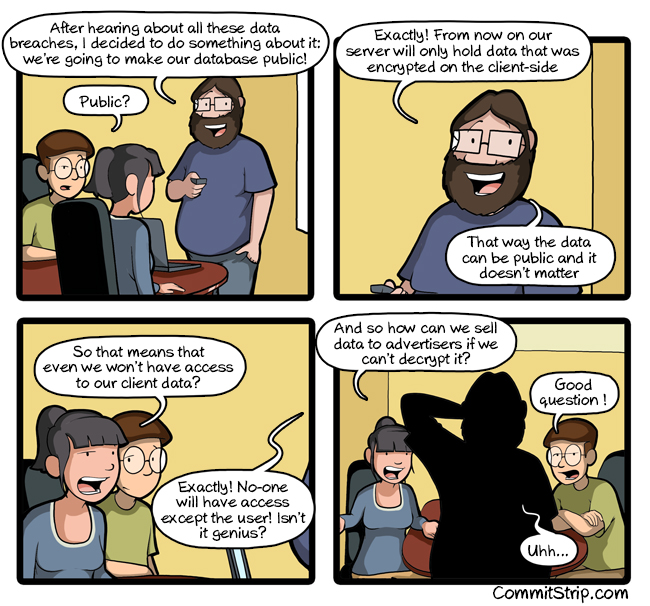
USB Cables
KingofthesofasI have so many half working USB cables that I really need to just throw away.
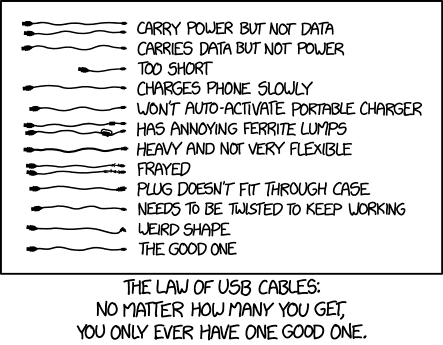
Childhood of a coder: Pirate all the things
Kingofthesofasman I remember Warez sites before torrents or newsgroups took over.
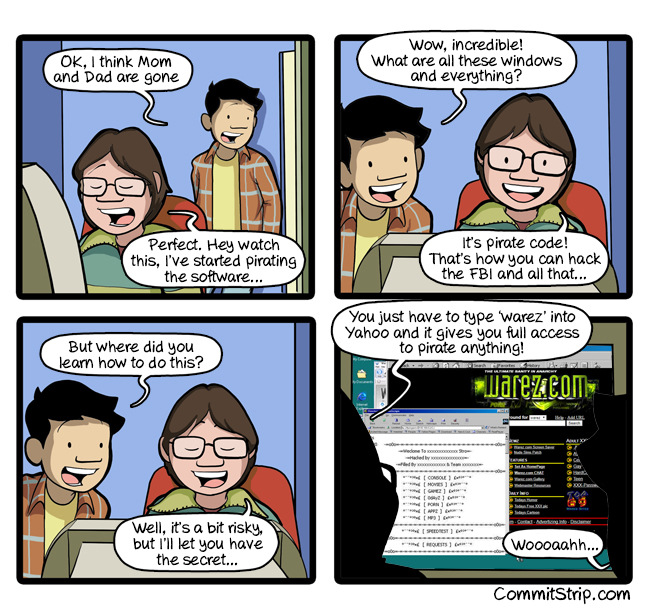
Still in Use
Kingofthesofasfun fact if a file is use locally on the server you can track it down with a variety of third party programs like unlocker or process explorer. If it is in use by some other server or user accessing it remotely then you will never be able to track that down because apparently that information is not important.
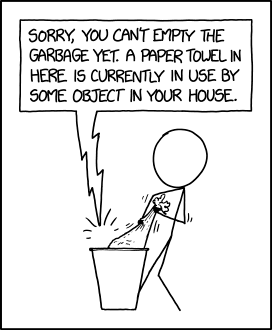
Currency
Kingofthesofasthis is my experience at Dell world every year.
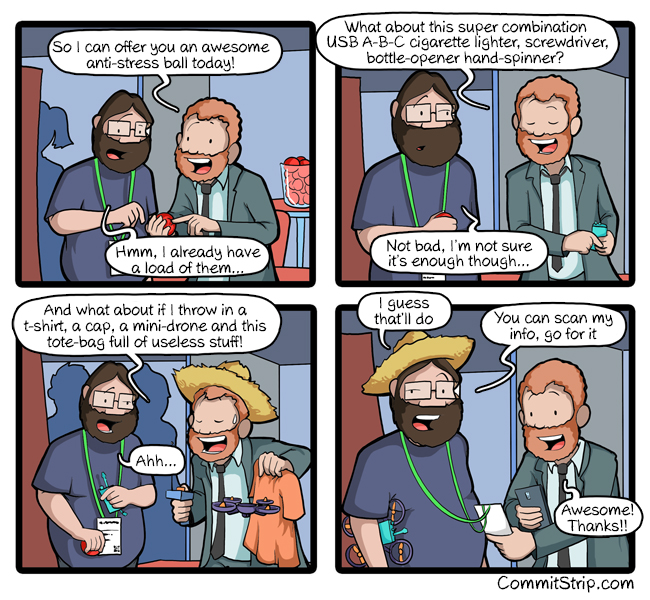
Security too expensive? Try a hack
KingofthesofasI have seen way too many companies spend a ton of money on a hack when 1% of that could have been spent to prevent the hack in the first place.
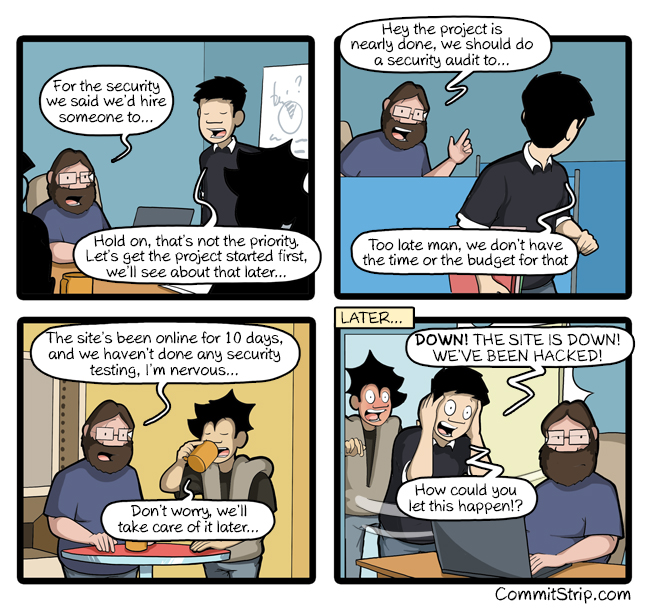
Doctor Visit
KingofthesofasI think deeply about this very same subject. Can anyone think of a single complex machine made by the hand of man that can even compare to the human body as far as complexity and durability. It blows my mind sometimes.
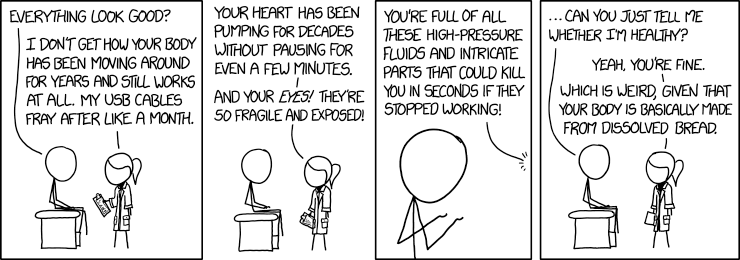
The Quick vs. the Strong: Commentary on Cory Doctorow's Walkaway
KingofthesofasI need to read Cory's new book
Technological advances change the world. That's partly because of what they are, but even more because of the social changes they enable. New technologies upend power balances. They give groups new capabilities, increased effectiveness, and new defenses. The Internet decades have been a never-ending series of these upendings. We've seen existing industries fall and new industries rise. We've seen governments become more powerful in some areas and less in others. We've seen the rise of a new form of governance: a multi-stakeholder model where skilled individuals can have more power than multinational corporations or major governments.
Among the many power struggles, there is one type I want to particularly highlight: the battles between the nimble individuals who start using a new technology first, and the slower organizations that come along later.
In general, the unempowered are the first to benefit from new technologies: hackers, dissidents, marginalized groups, criminals, and so on. When they first encountered the Internet, it was transformative. Suddenly, they had access to technologies for dissemination, coordination, organization, and action -- things that were impossibly hard before. This can be incredibly empowering. In the early decades of the Internet, we saw it in the rise of Usenet discussion forums and special-interest mailing lists, in how the Internet routed around censorship, and how Internet governance bypassed traditional government and corporate models. More recently, we saw it in the SOPA/PIPA debate of 2011-12, the Gezi protests in Turkey and the various "color" revolutions, and the rising use of crowdfunding. These technologies can invert power dynamics, even in the presence of government surveillance and censorship.
But that's just half the story. Technology magnifies power in general, but the rates of adoption are different. Criminals, dissidents, the unorganized -- all outliers -- are more agile. They can make use of new technologies faster, and can magnify their collective power because of it. But when the already-powerful big institutions finally figured out how to use the Internet, they had more raw power to magnify.
This is true for both governments and corporations. We now know that governments all over the world are militarizing the Internet, using it for surveillance, censorship, and propaganda. Large corporations are using it to control what we can do and see, and the rise of winner-take-all distribution systems only exacerbates this.
This is the fundamental tension at the heart of the Internet, and information-based technology in general. The unempowered are more efficient at leveraging new technology, while the powerful have more raw power to leverage. These two trends lead to a battle between the quick and the strong: the quick who can make use of new power faster, and the strong who can make use of that same power more effectively.
This battle is playing out today in many different areas of information technology. You can see it in the security vs. surveillance battles between criminals and the FBI, or dissidents and the Chinese government. You can see it in the battles between content pirates and various media organizations. You can see it where social-media giants and Internet-commerce giants battle against new upstarts. You can see it in politics, where the newer Internet-aware organizations fight with the older, more established, political organizations. You can even see it in warfare, where a small cadre of military can keep a country under perpetual bombardment -- using drones -- with no risk to the attackers.
This battle is fundamental to Cory Doctorow's new novel Walkaway. Our heroes represent the quick: those who have checked out of traditional society, and thrive because easy access to 3D printers enables them to eschew traditional notions of property. Their enemy is the strong: the traditional government institutions that exert their power mostly because they can. This battle rages through most of the book, as the quick embrace ever-new technologies and the strong struggle to catch up.
It's easy to root for the quick, both in Doctorow's book and in the real world. And while I'm not going to give away Doctorow's ending -- and I don't know enough to predict how it will play out in the real world -- right now, trends favor the strong.
Centralized infrastructure favors traditional power, and the Internet is becoming more centralized. This is true both at the endpoints, where companies like Facebook, Apple, Google, and Amazon control much of how we interact with information. It's also true in the middle, where companies like Comcast increasingly control how information gets to us. It's true in countries like Russia and China that increasingly legislate their own national agenda onto their pieces of the Internet. And it's even true in countries like the US and the UK, that increasingly legislate more government surveillance capabilities.
At the 1996 World Economic Forum, cyber-libertarian John Perry Barlow issued his "Declaration of the Independence of Cyberspace," telling the assembled world leaders and titans of Industry: "You have no moral right to rule us, nor do you possess any methods of enforcement that we have true reason to fear." Many of us believed him a scant 20 years ago, but today those words ring hollow.
But if history is any guide, these things are cyclic. In another 20 years, even newer technologies -- both the ones Doctorow focuses on and the ones no one can predict -- could easily tip the balance back in favor of the quick. Whether that will result in more of a utopia or a dystopia depends partly on these technologies, but even more on the social changes resulting from these technologies. I'm short-term pessimistic but long-term optimistic.
This essay previously appeared on Crooked Timber.
Using Ultrasonic Beacons to Track Users
Kingofthesofasthat's creepy at all....
I've previously written about ad networks using ultrasonic communications to jump from one device to another. The idea is for devices like televisions to play ultrasonic codes in advertisements and for nearby smartphones to detect them. This way the two devices can be linked.
Creepy, yes. And also increasingly common, as this research demonstrates:
Privacy Threats through Ultrasonic Side Channels on Mobile Devices
by Daniel Arp, Erwin Quiring, Christian Wressnegger and Konrad Rieck
Abstract: Device tracking is a serious threat to the privacy of users, as it enables spying on their habits and activities. A recent practice embeds ultrasonic beacons in audio and tracks them using the microphone of mobile devices. This side channel allows an adversary to identify a user's current location, spy on her TV viewing habits or link together her different mobile devices. In this paper, we explore the capabilities, the current prevalence and technical limitations of this new tracking technique based on three commercial tracking solutions. To this end, we develop detection approaches for ultrasonic beacons and Android applications capable of processing these. Our findings confirm our privacy concerns: We spot ultrasonic beacons in various web media content and detect signals in 4 of 35 stores in two European cities that are used for location tracking. While we do not find ultrasonic beacons in TV streams from 7 countries, we spot 234 Android applications that are constantly listening for ultrasonic beacons in the background without the user's knowledge.
First things first
KingofthesofasIs it bad to have spaces in code.... if so then I am screwed.
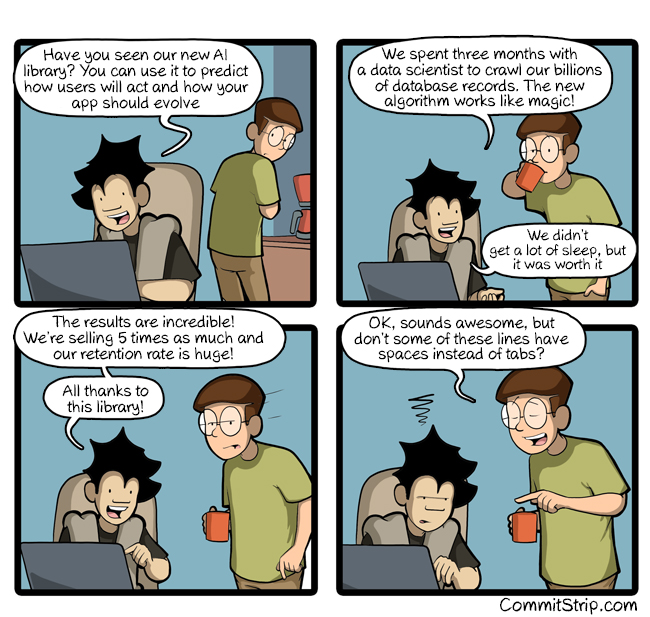
Servers? There are no servers here
Kingofthesofastrying to explain this to people is sometimes quite hard. I am like there are always servers somewhere it just depends on who it managing them.
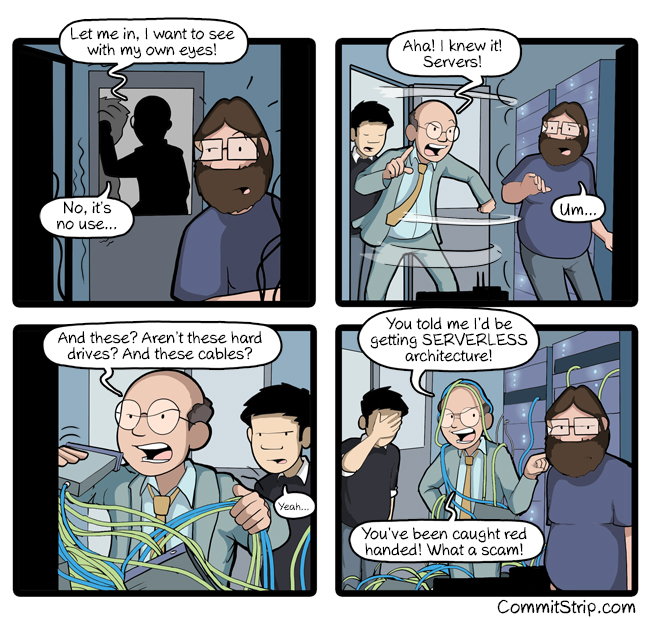
Survivorship Bias
Kingofthesofasyes I have felt this thing over and over again when hearing Ted talks or people talk about how they made it. For everyone that is really successful in a thing there are countless others that tried that same thing and failed.
